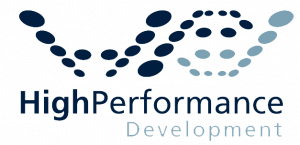Graduates are the future of your organisation. They are the leaders of tomorrow. How can you ensure that you recruit and retain the best people for your organisation?
By demonstrating from day one that you value your graduates and can offer a varied and comprehensive development programme you become more appealing which also helps increase retention and loyalty.
Our programmes are designed in conjunction with graduate development managers to ensure that they dovetail smoothly with the induction and overall development programme.
We aim to equip graduates with the skills needed for a successful transition from student life to the business world. By introducing them to fundamental leadership, teamworking and inter-personal skills, an understanding of emotional intelligence, health and well-being, presentation and communication skills – including how to make an impact for the right reason – graduates return to your business motivated and better prepared.
Our programmes also help bond the group into a self-supporting graduate network who build strong relationships throughout their graduate scheme that last throughout their careers.
Graduates will return to your business with:
- Improved self confidence
- An understanding of fundamental leadership and teambuilding skills
- Improved self and time management
- Better communication and presentation skills
- Improved performance through increased energy levels by realising the importance of health and wellbeing
- The ability to create effective working relationships through improved inter-personal skills
- A better understanding of their own strengths and weaknesses
- Having developed a personal action plan based around their personal goals
- Establishing a self-supporting network
Each programme is tailor-made to the specific requirements of individual companies but are similar in format, with a strong emphasis on experiential learning. This combination of indoor theoretical work and outdoor practical application allows the theory to be put into practice ensuring the training is understood more clearly as well as being enjoyable, relevant, memorable and beneficial.
The theoretical aspect includes tutor input covering tried and tested models and theories – HPD’s own models, facilitated discussion sessions, syndicate group activities, psychometric profiling, 1:1 feedback and personal reflection and action planning.
The experiential learning is through practical application where teams carry out leadership tasks which are a series of enjoyable team challenges that are best described as light physical and cerebrally challenging.
Each task is followed by a facilitated debrief where teams discuss what went well, what didn’t and what could improved upon. Important lessons learnt are then drawn out and made relevant to their own working environment and issues they face.








